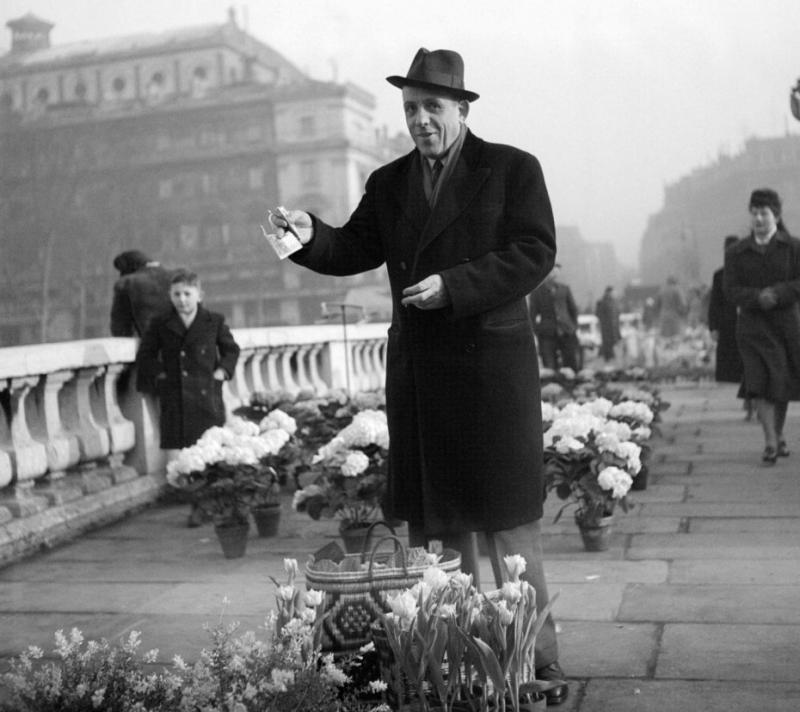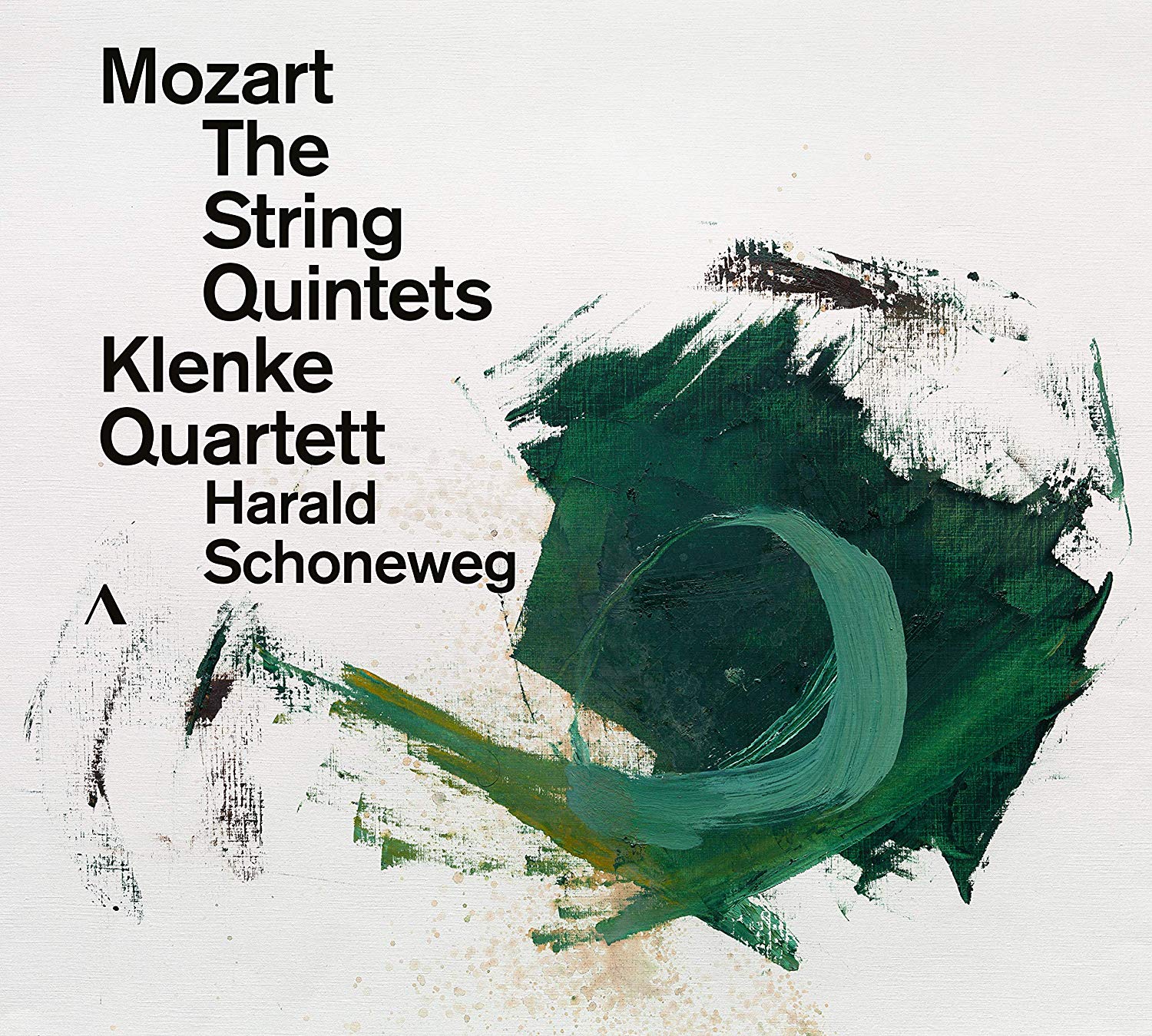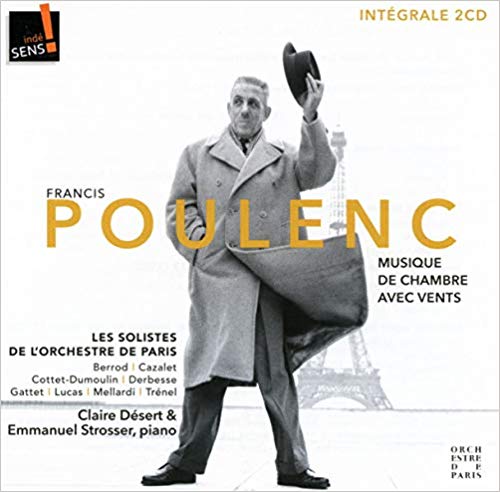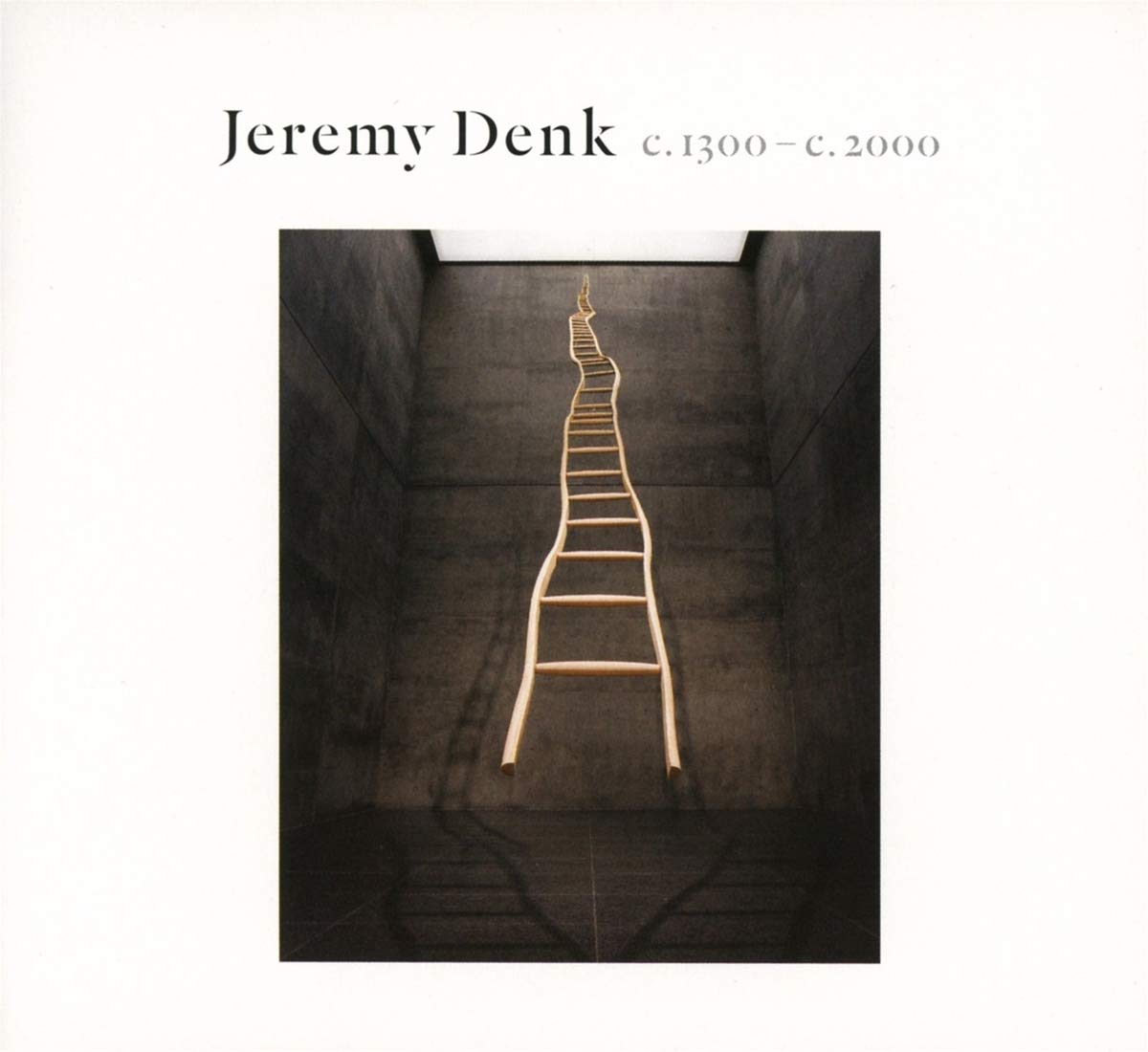Classical CDs Weekly: Mozart, Poulenc, Jeremy Denk | reviews, news & interviews
Classical CDs Weekly: Mozart, Poulenc, Jeremy Denk
Classical CDs Weekly: Mozart, Poulenc, Jeremy Denk
Strings and winds from Vienna and Paris, plus eight centuries of keyboard music

 Mozart: The String Quintets Klenke Quartet (with Harald Schoneweg, viola) (Accentus Music)
Mozart: The String Quintets Klenke Quartet (with Harald Schoneweg, viola) (Accentus Music)
The viola was Mozart's instrument of choice when playing chamber music, his fondness for the instrument's warm timbre prompting him to add a second viola to the quartet line-up when composing his six string quintets. Listen to this set through good headphones and it's as if you’ve turned up the bass a notch or two. The augmented Klenke Quartet make a superbly sonorous, rich sound, one so fulsome that you could mistake their sound in the denser passages for that of a small chamber orchestra. They capture, beautifully, Mozart's ability to flit between ecstacy and melancholy in a beat, most notably on the two mid-period minor-key quintets. No 2’s opening movement is a case in point, the sombre first subject nicely driven and the ideal foil for a delectably warm second theme. The quintet’s major-key close feels hard-earned and emotionally right. No 4 is another treat: I'm smitten by the finale’s slow opening, Ruth Kaltenhäuser’s sonorous pizzicato bass line perfectly judged. Both are large-scale works, their seams bursting with ideas. No 3 in C major is bigger still, a symphony in microcosm.
The Klenkes don't undersell the youthful first quintet, written when Mozart was still a teen. And they're unmatched in the final two, both works which combine formal perfection with unpretentious exuberance. No 5’s last movement is a particular treat. A lovely set, handsomely recorded to boot.
 Poulenc: Musique de chambre avec vents Les Soloistes de l’Orchestre de Paris (Indesens)
Poulenc: Musique de chambre avec vents Les Soloistes de l’Orchestre de Paris (Indesens)
Other decent compilations of Poulenc's wind music are readily available, but this one feels especially authentic, its performers drawn from the same tradition of musicians who first performed these pieces. And in an age when orchestral playing is increasingly homogenised, it's still just possible to detect French accents on this set. Oboist Alexandre Gattet’s piquant tone is a consistent delight, invoking tears in the the last movement of Poulenc's late Oboe Sonata, and the three brass soloists in the delicious Sonata for Horn, Trumpet and Trombone revel in the music's sharper edges, Poulenc's debt to Stravinsky clear.
The discs are organised into Les œuvres de jeunesse and Les dernières œuvres. I'd not realised that a 25-year gap separates the infectious Sextet of 1932 with the next wind piece, the Élegie for horn and piano. Comparing the two periods is fascinating, the cheeky brilliance of the early works married with greater emotional depth in Poulenc's final years. The Élegie, a musical memorial to horn player Dennis Brain, is magnificently performed here by André Cazalet and pianist Emmanuel Strosser, the 12-tone horn call at the outset sounding, miraculously, like a typically Poulencian melody. And the incendiary finale to the little Clarinet Sonata, premièred posthumously by Benny Goodman and Leonard Bernstein, will put a spring in anyone's step. Sleeve notes are in French only, but should be accessible to anyone with a passable GCSE grade. And there's a super photo of the great man reclining in a favourite armchair, cigarette in hand.
 Jeremy Denk c.1300 – c.2000 (Nonesuch)
Jeremy Denk c.1300 – c.2000 (Nonesuch)
Pianist and polymath Jeremy Denk's double album of “sonic snapshots” is one musician’s personal history of western classical music. Naysayers might take issue with some of Denk’s choices and the fact that the earliest pieces here are vocal works in piano transcriptions. Or that Bach and Mozart share a playlist with Philip Glass. Still, I defy anyone not to be impressed by the beauty and intelligence of the playing, Denk’s rapt take on Guillaume de Machaut’s Doulz amis underlining how stark and uncompromising this music sounds to modern ears. The first half contains the novelties, items by Dufay, Gesualdo and Janequin tracing the development of counterpoint. Byrd's A voluntarie marks a significant development in having actually been written for a keyboard instrument, the subsequent pieces by Scarlatti and Bach marking the shift from modes to major and minor keys.
After which we hit more familiar territory, reaching Ligeti via Chopin, Brahms, Debussy and Stravinsky. Having Stockhausen segue into Glass via a single held note is a masterstroke, and a nihilistic Ligeti Etude doesn’t quite get the last word, Denk instead reprising Gilles Binchois’s haunting Triste plaisir. 90 or so minutes of stimulating brain food, ideally consumed in a single sitting.
Share this article
The future of Arts Journalism
You can stop theartsdesk.com closing!
We urgently need financing to survive. Our fundraising drive has thus far raised £49,000 but we need to reach £100,000 or we will be forced to close. Please contribute here: https://gofund.me/c3f6033d
And if you can forward this information to anyone who might assist, we’d be grateful.

Subscribe to theartsdesk.com
Thank you for continuing to read our work on theartsdesk.com. For unlimited access to every article in its entirety, including our archive of more than 15,000 pieces, we're asking for £5 per month or £40 per year. We feel it's a very good deal, and hope you do too.
To take a subscription now simply click here.
And if you're looking for that extra gift for a friend or family member, why not treat them to a theartsdesk.com gift subscription?
more Classical music
 Echo Vocal Ensemble, Latto, Union Chapel review - eclectic choral programme garlanded with dance
Beautiful singing at the heart of an imaginative and stylistically varied concert
Echo Vocal Ensemble, Latto, Union Chapel review - eclectic choral programme garlanded with dance
Beautiful singing at the heart of an imaginative and stylistically varied concert
 Scott, Irish Baroque Orchestra, Whelan, RIAM, Dublin review - towards a Mozart masterpiece
Characteristic joy and enlightenment from this team, but a valveless horn brings problems
Scott, Irish Baroque Orchestra, Whelan, RIAM, Dublin review - towards a Mozart masterpiece
Characteristic joy and enlightenment from this team, but a valveless horn brings problems
 Classical CDs: Voice flutes, flugelhorns and froth
Baroque sonatas, English orchestral music and an emotionally-charged vocal recital
Classical CDs: Voice flutes, flugelhorns and froth
Baroque sonatas, English orchestral music and an emotionally-charged vocal recital
 Kanneh-Mason, Britten Sinfonia, Shave, Milton Court - a grin and a big beaming smile
A pair of striking contemporary pieces alongside two old favourites
Kanneh-Mason, Britten Sinfonia, Shave, Milton Court - a grin and a big beaming smile
A pair of striking contemporary pieces alongside two old favourites
 theartsdesk at the New Ross Piano Festival - Finghin Collins’ musical rainbow
From revelatory Bach played with astounding maturity by a 22 year old to four-hand jazz
theartsdesk at the New Ross Piano Festival - Finghin Collins’ musical rainbow
From revelatory Bach played with astounding maturity by a 22 year old to four-hand jazz
 First Person: Manchester Camerata's Head of Artistic Planning Clara Marshall Cawley on questioning the status quo
Five days of free events with all sorts of audiences around Manchester starts tomorrow
First Person: Manchester Camerata's Head of Artistic Planning Clara Marshall Cawley on questioning the status quo
Five days of free events with all sorts of audiences around Manchester starts tomorrow
 Goldscheider, Brother Tree Sound, Kings Place review - music of hope from a young composer
Unusual combination of horn, strings and electronics makes for some intriguing listening
Goldscheider, Brother Tree Sound, Kings Place review - music of hope from a young composer
Unusual combination of horn, strings and electronics makes for some intriguing listening
 theartsdesk Q&A: composer Donghoon Shin on his new concerto for pianist Seong-Jin Cho
Classical music makes its debut at London's K-Music Festival
theartsdesk Q&A: composer Donghoon Shin on his new concerto for pianist Seong-Jin Cho
Classical music makes its debut at London's K-Music Festival
 Helleur-Simcock, Hallé, Wong, Bridgewater Hall, Manchester review - moving lyricism in Elgar’s concerto
Season opener brings lyrical beauty, crisp confidence and a proper Romantic wallow
Helleur-Simcock, Hallé, Wong, Bridgewater Hall, Manchester review - moving lyricism in Elgar’s concerto
Season opener brings lyrical beauty, crisp confidence and a proper Romantic wallow
 Kohout, Spence, Braun, Manchester Camerata, Huth, RNCM, Manchester review - joy, insight, imagination and unanimity
Celebration of the past with stars of the future at the Royal Northern College
Kohout, Spence, Braun, Manchester Camerata, Huth, RNCM, Manchester review - joy, insight, imagination and unanimity
Celebration of the past with stars of the future at the Royal Northern College

Add comment